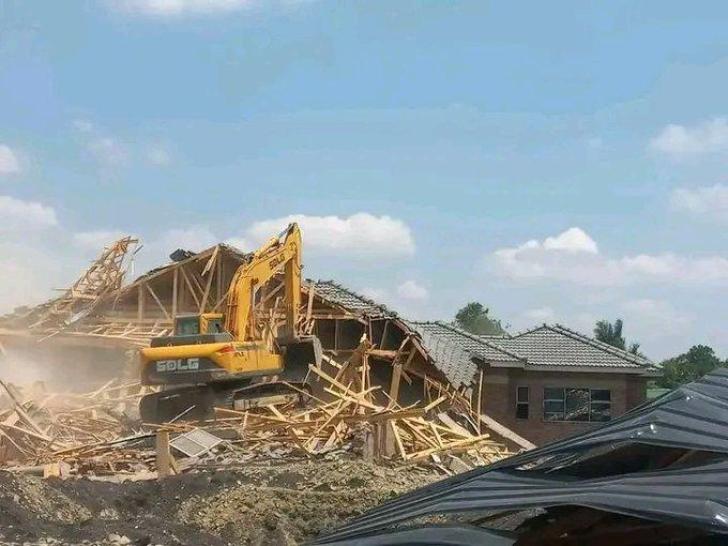News / National
Harare launches murambatswina
08 Nov 2024 at 07:14hrs |
0 Views

The City of Harare launched a major demolition operation in Ridgeview, Belvedere on Thursday, destroying several properties that were built without proper approval. The operation left dozens of families homeless, as graders leveled houses in what officials say will be a citywide crackdown on illegal settlements.
Samuel Nyabeza, the director of planning for the City of Harare, confirmed that the demolitions targeted properties built on land with fake documentation. Many of the affected residents claimed that they had been allocated the land by the state. Nyabeza explained that these illegal settlers had been warned in advance about the impending demolition.
"These settlements were identified last year, and we demolished the structures at that time," Nyabeza said. "However, many of the occupants returned, often at the instigation of land barons who had sold them the land. They rebuilt their homes, which is why we are now taking further action."
The city official warned that similar demolitions would continue across Harare as part of the city's efforts to restore order and prevent illegal construction. He also issued a stern warning to land barons who sell illegal plots to unsuspecting buyers, stating that they would face arrest "without fear or favour."
"We have to restore order in the city, and we will not tolerate a situation where people just build houses without approvals and permission from the council," Nyabeza said. "A settlement has to be planned with all amenities in place before people start building. You cannot build a house without council-approved plans, and you cannot build where there are no sewer and water facilities."
The city has also urged residents to verify the legitimacy of any land they are considering purchasing, warning them to check with the City of Harare before buying property. Nyabeza stressed that every stage of construction should be approved by the council to ensure that infrastructure and services meet the required standards.
While the demolitions have drawn criticism from displaced families, who now face uncertainty and homelessness, the city remains firm in its stance on enforcing building regulations. The ongoing operation reflects Harare's commitment to addressing the city's rapid urban expansion and ensuring that future developments meet the necessary legal and infrastructure requirements.
Samuel Nyabeza, the director of planning for the City of Harare, confirmed that the demolitions targeted properties built on land with fake documentation. Many of the affected residents claimed that they had been allocated the land by the state. Nyabeza explained that these illegal settlers had been warned in advance about the impending demolition.
"These settlements were identified last year, and we demolished the structures at that time," Nyabeza said. "However, many of the occupants returned, often at the instigation of land barons who had sold them the land. They rebuilt their homes, which is why we are now taking further action."
The city official warned that similar demolitions would continue across Harare as part of the city's efforts to restore order and prevent illegal construction. He also issued a stern warning to land barons who sell illegal plots to unsuspecting buyers, stating that they would face arrest "without fear or favour."
"We have to restore order in the city, and we will not tolerate a situation where people just build houses without approvals and permission from the council," Nyabeza said. "A settlement has to be planned with all amenities in place before people start building. You cannot build a house without council-approved plans, and you cannot build where there are no sewer and water facilities."
The city has also urged residents to verify the legitimacy of any land they are considering purchasing, warning them to check with the City of Harare before buying property. Nyabeza stressed that every stage of construction should be approved by the council to ensure that infrastructure and services meet the required standards.
While the demolitions have drawn criticism from displaced families, who now face uncertainty and homelessness, the city remains firm in its stance on enforcing building regulations. The ongoing operation reflects Harare's commitment to addressing the city's rapid urban expansion and ensuring that future developments meet the necessary legal and infrastructure requirements.
Source - NewZimbabwe
Join the discussion
Loading comments…



























